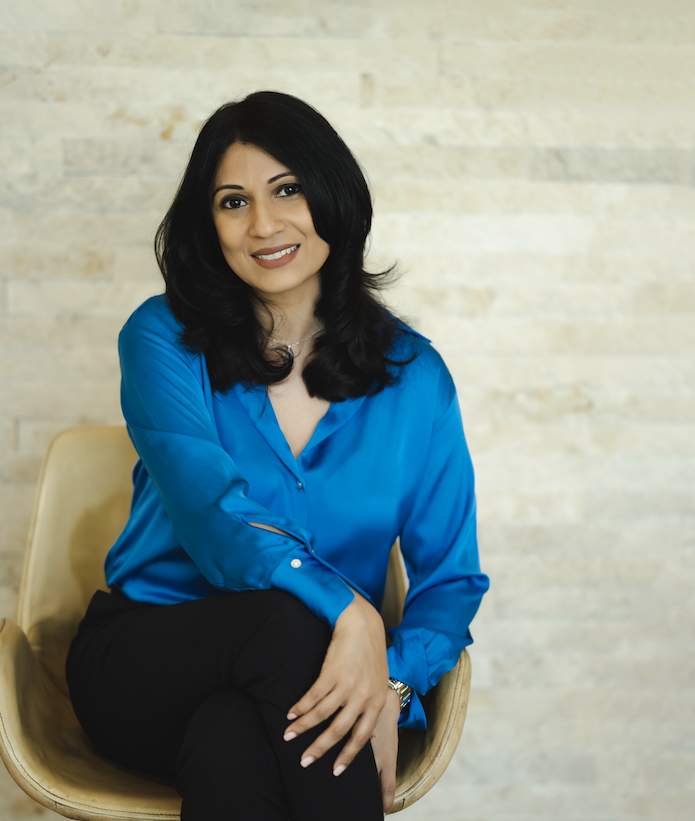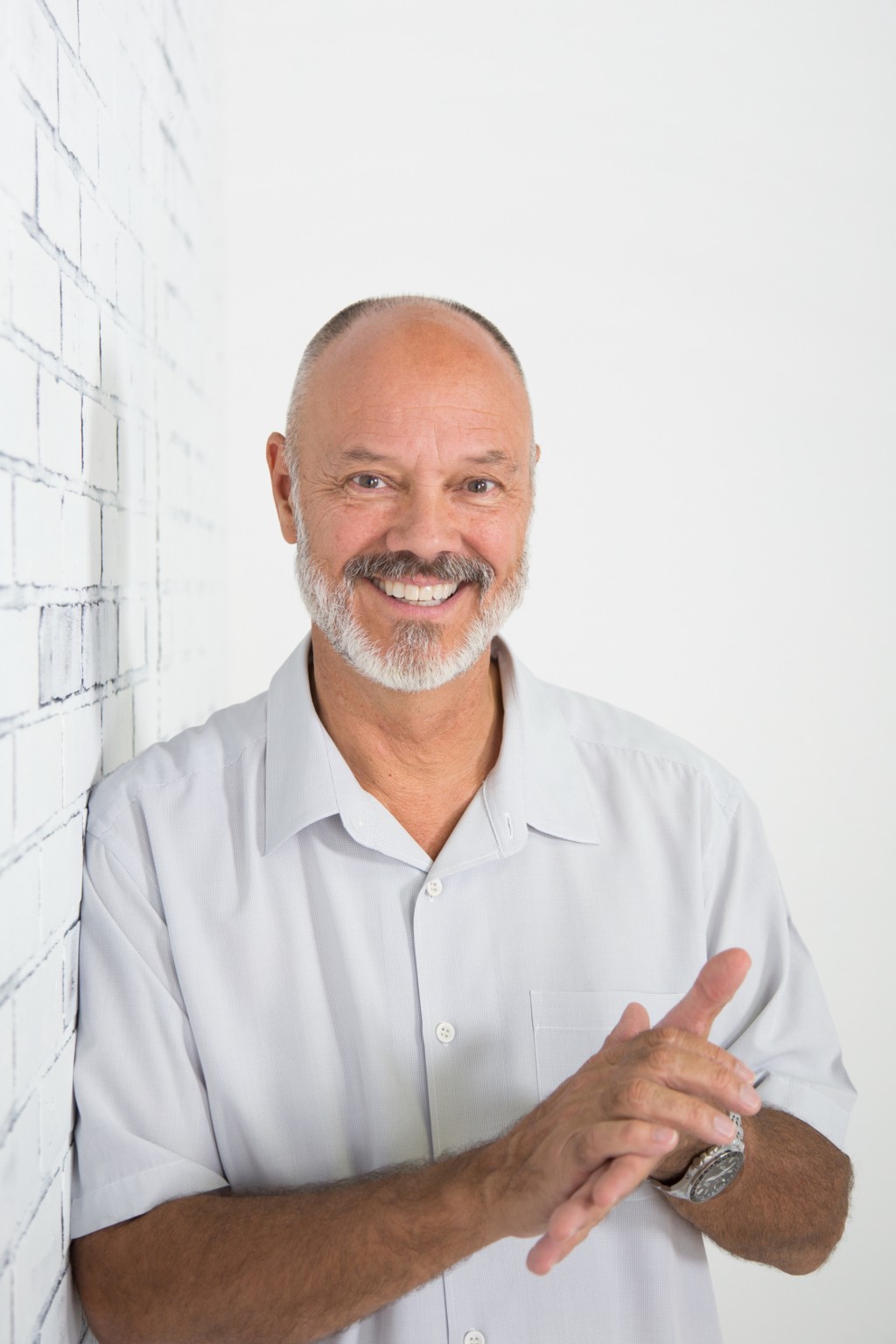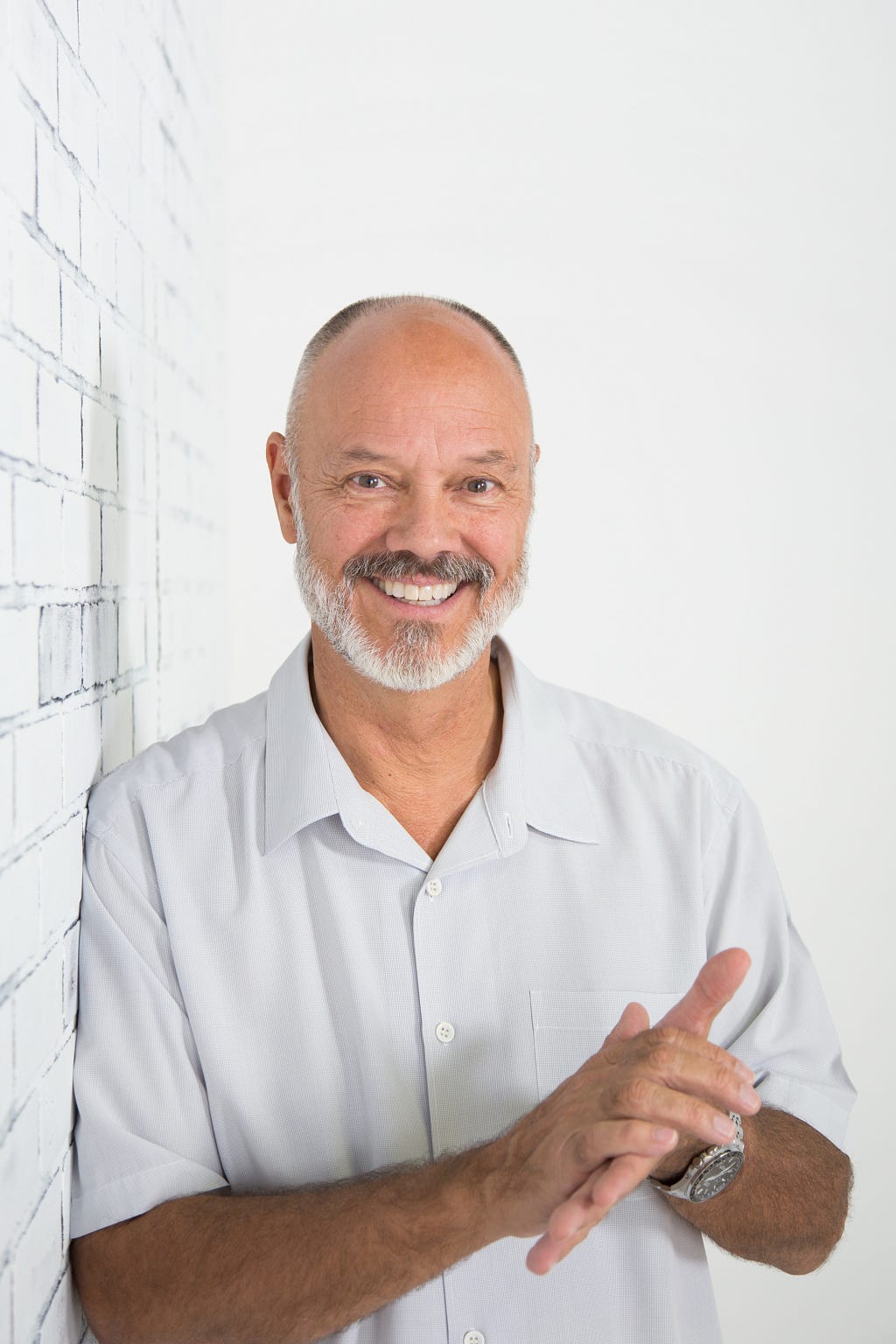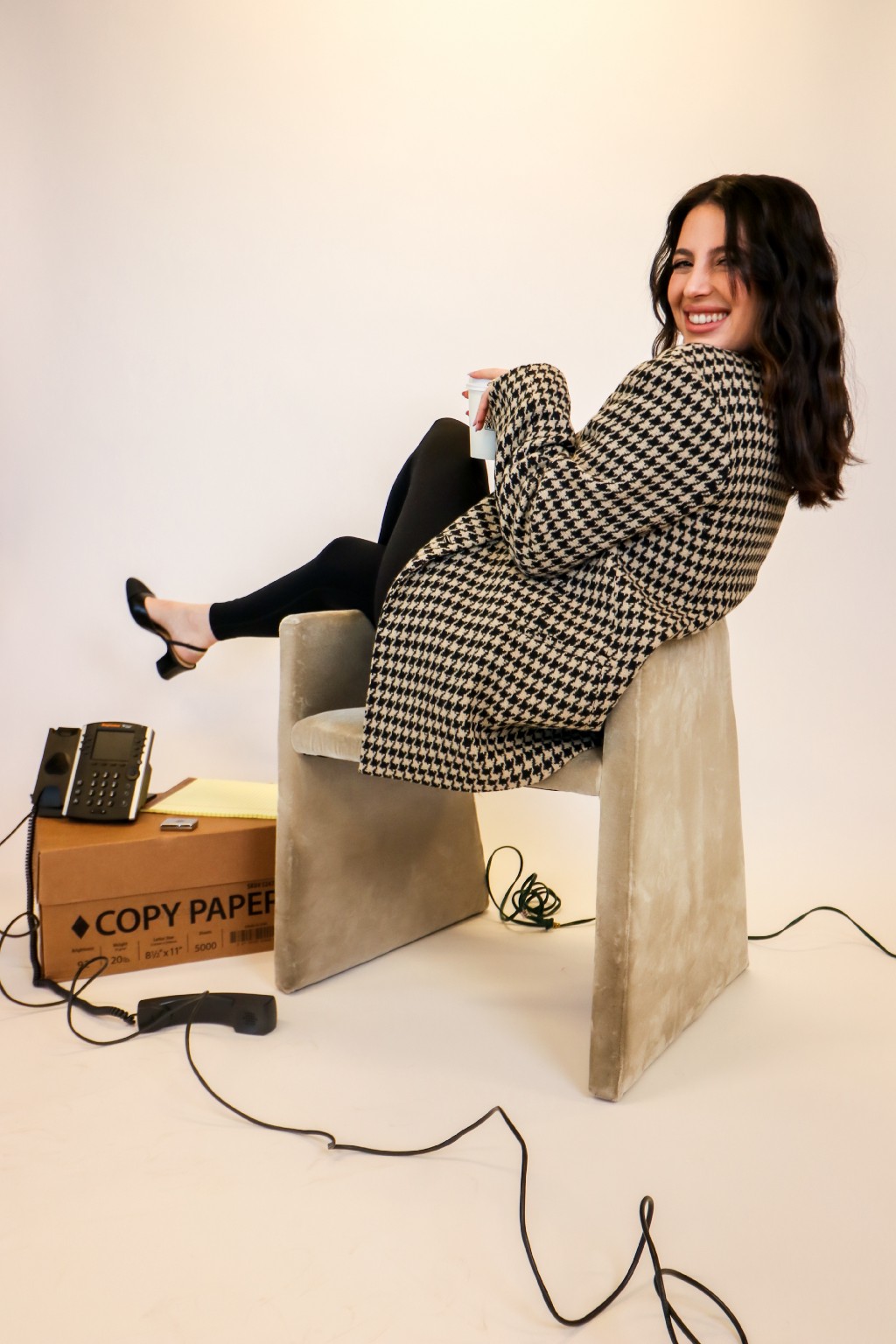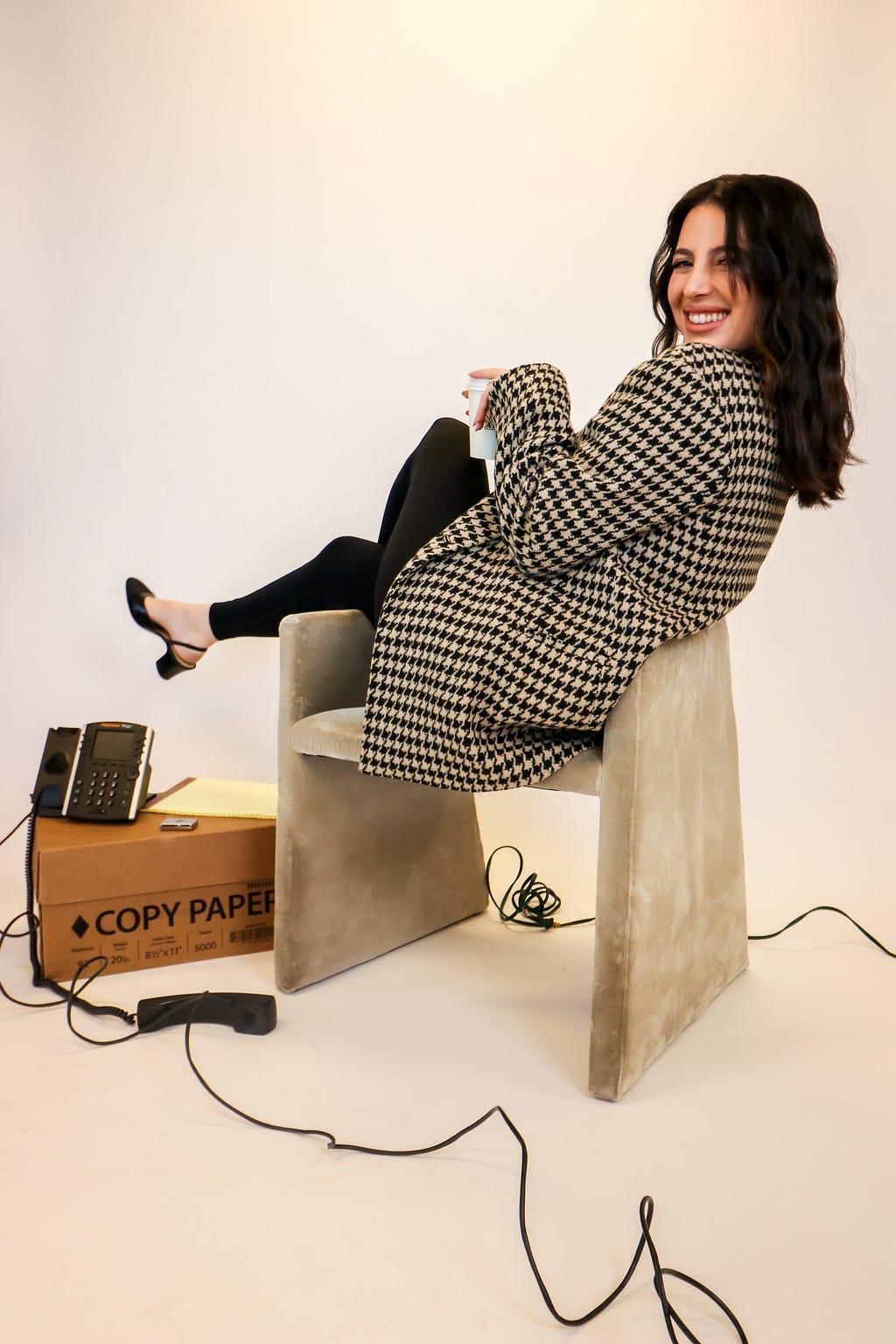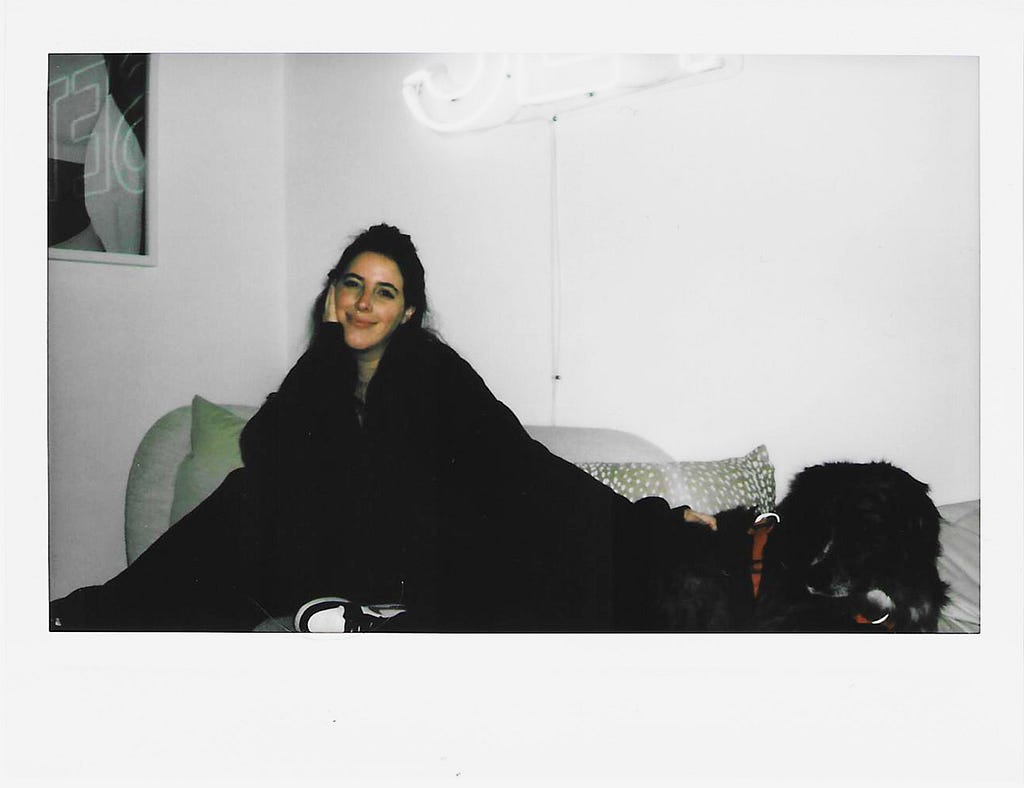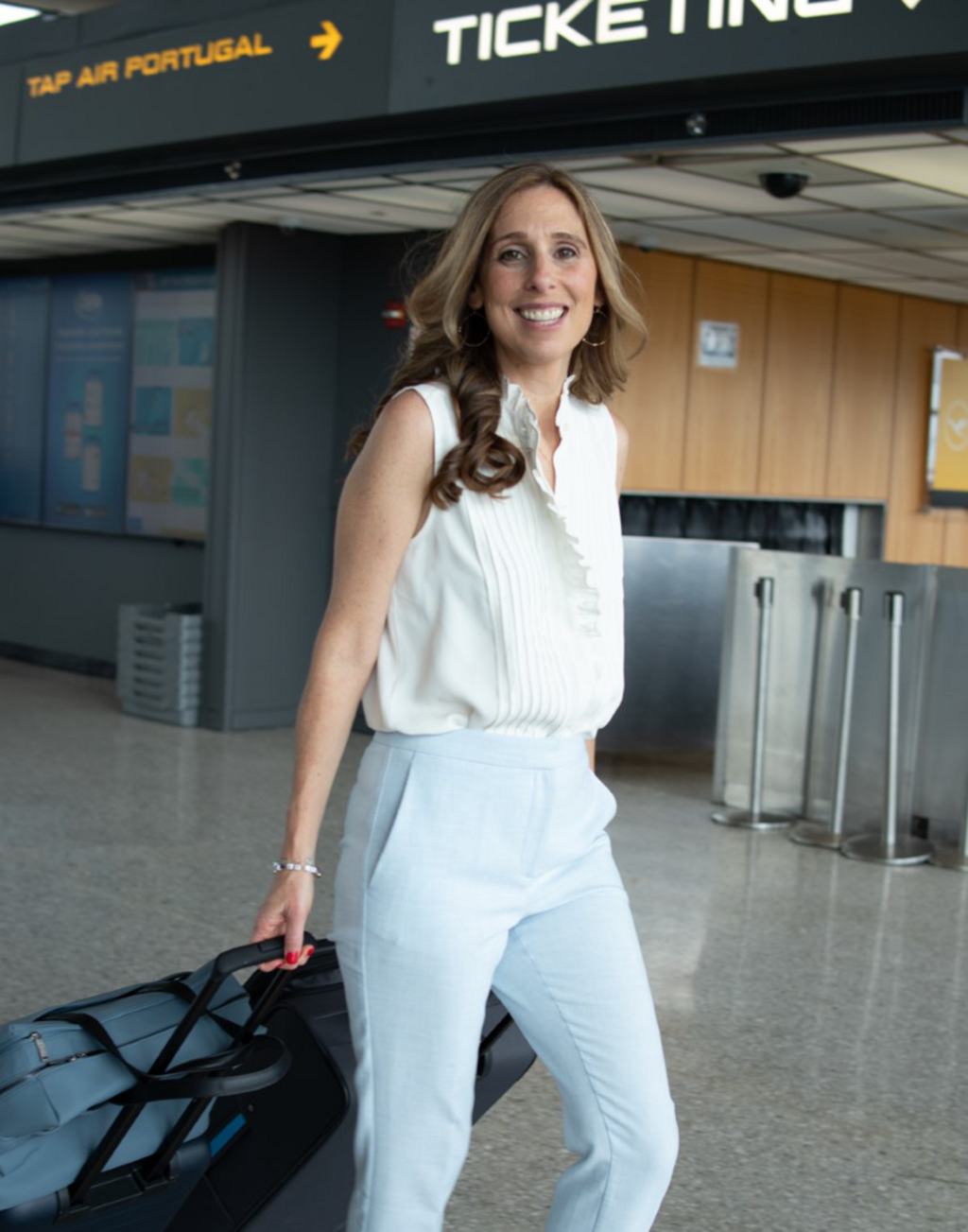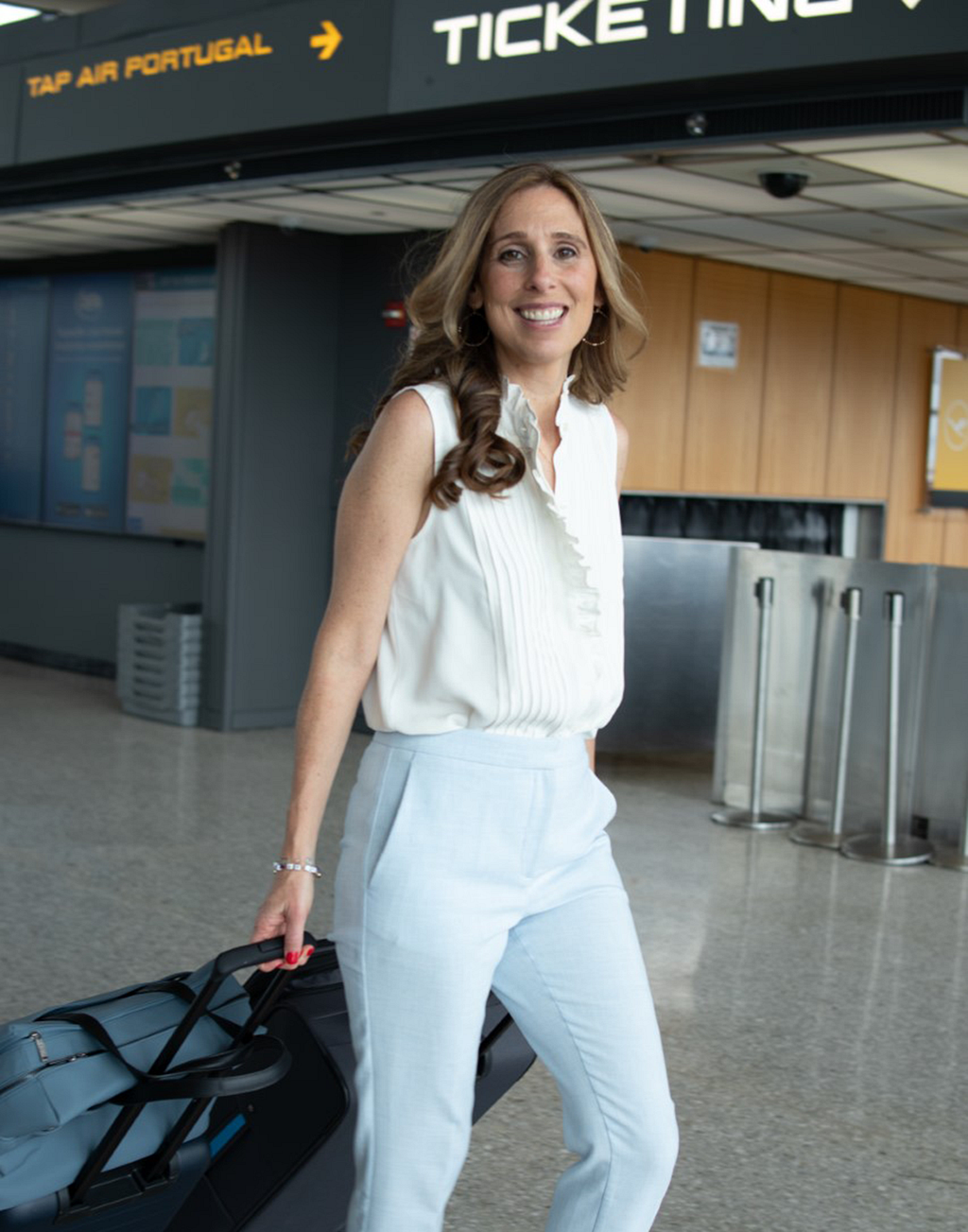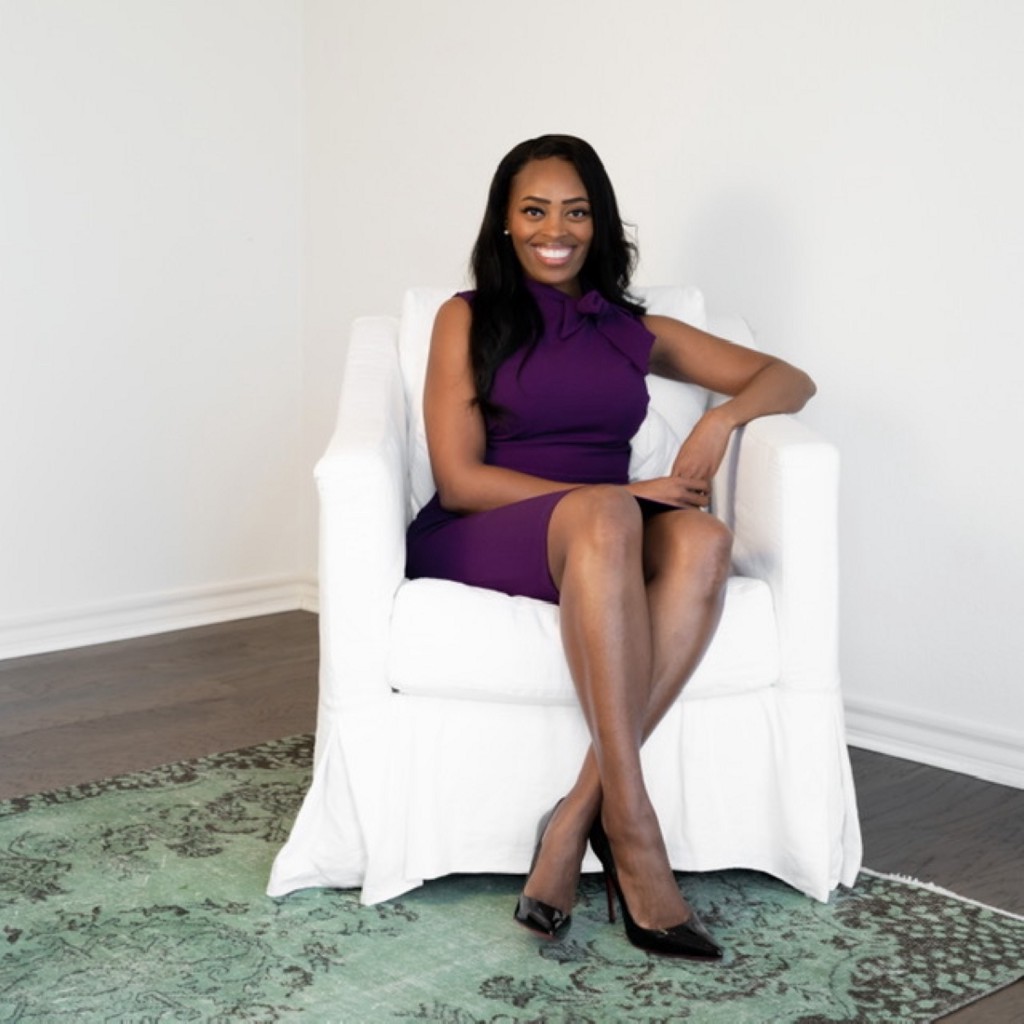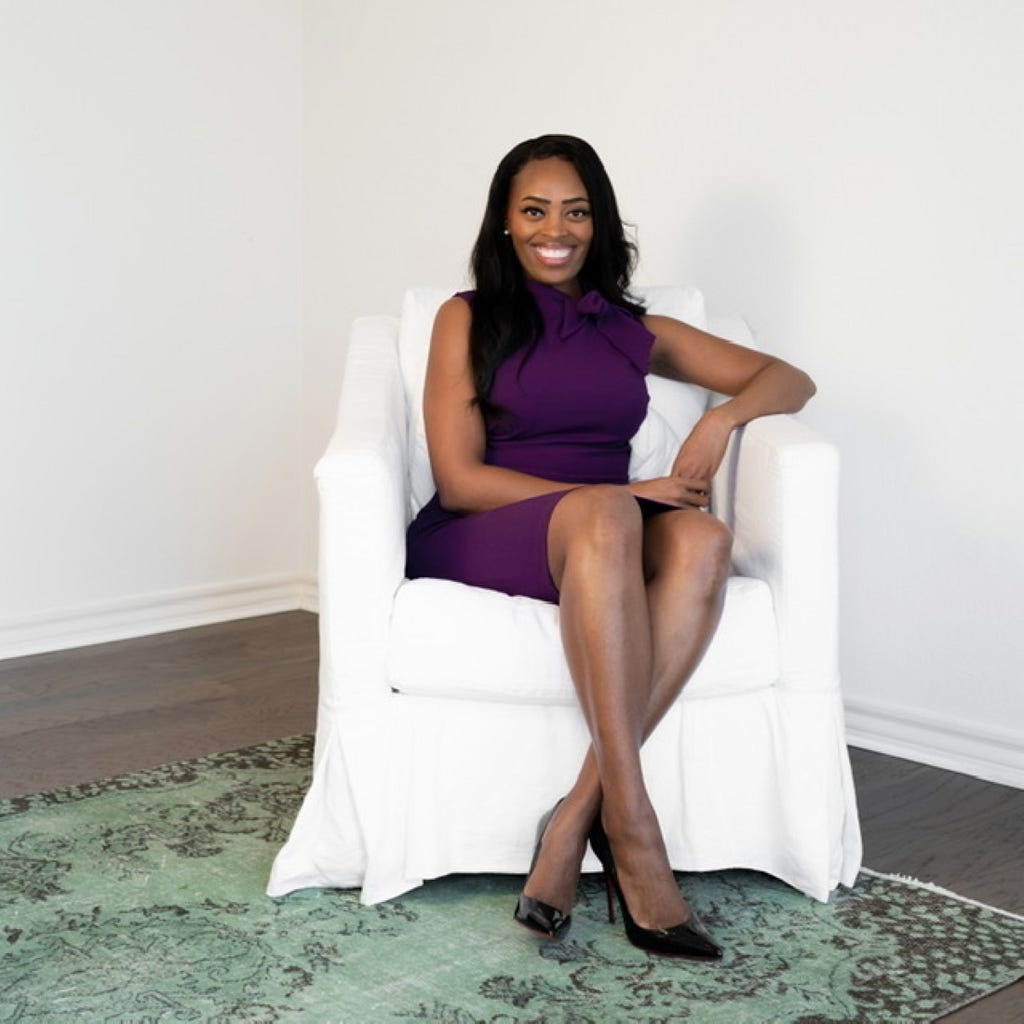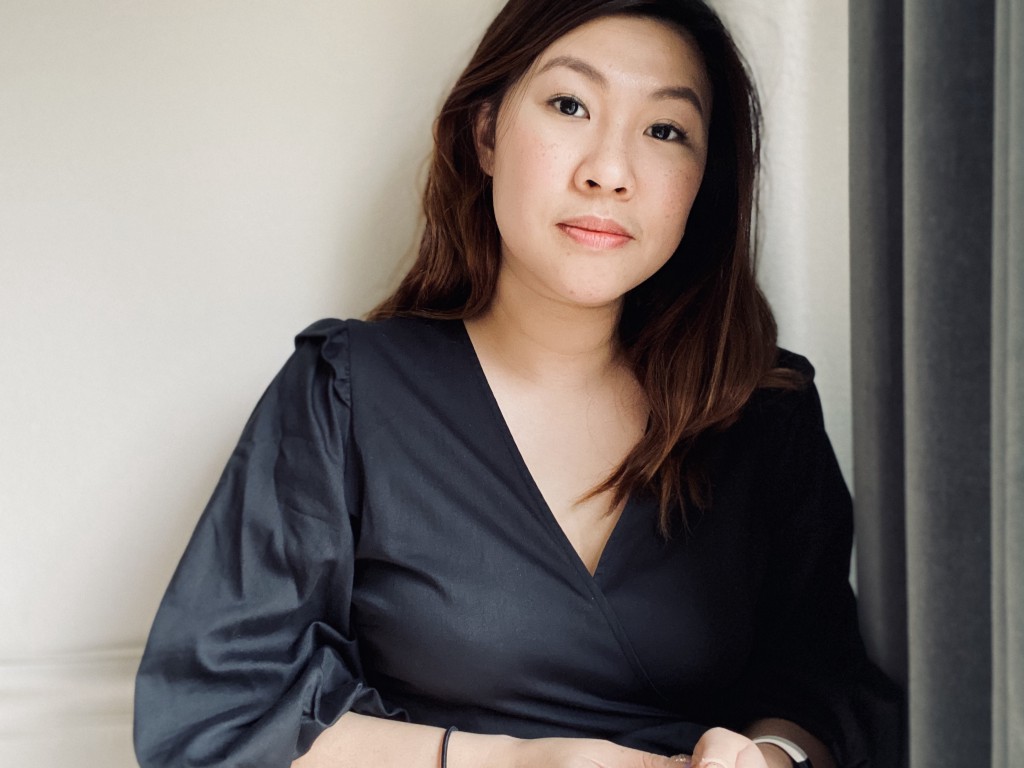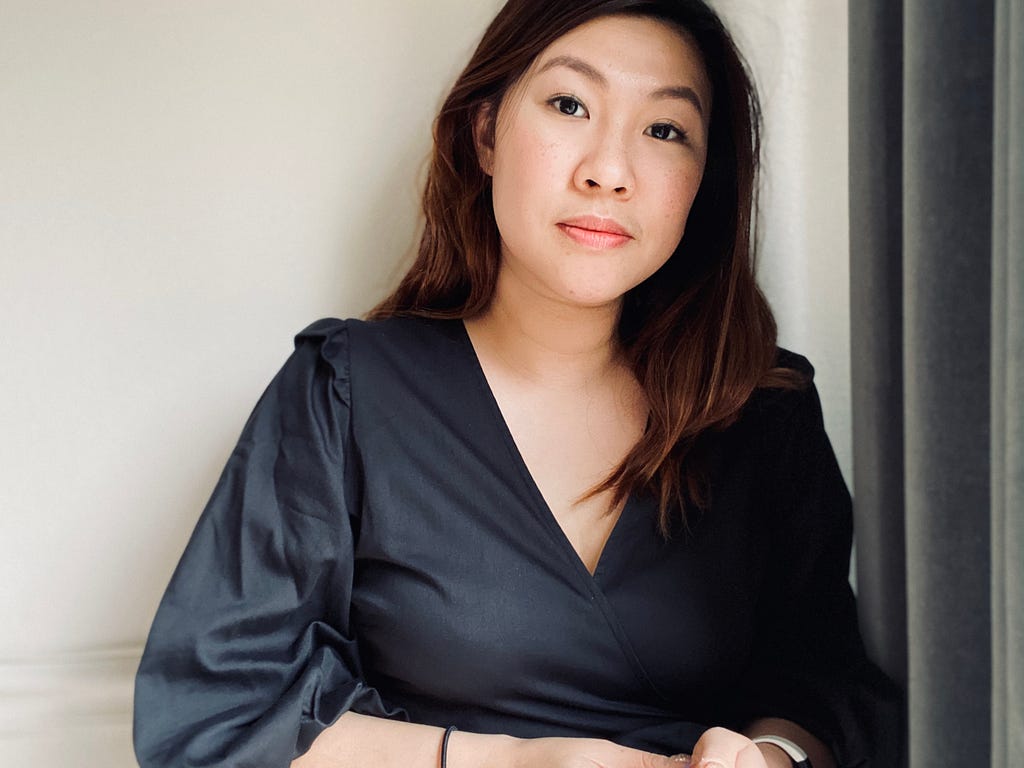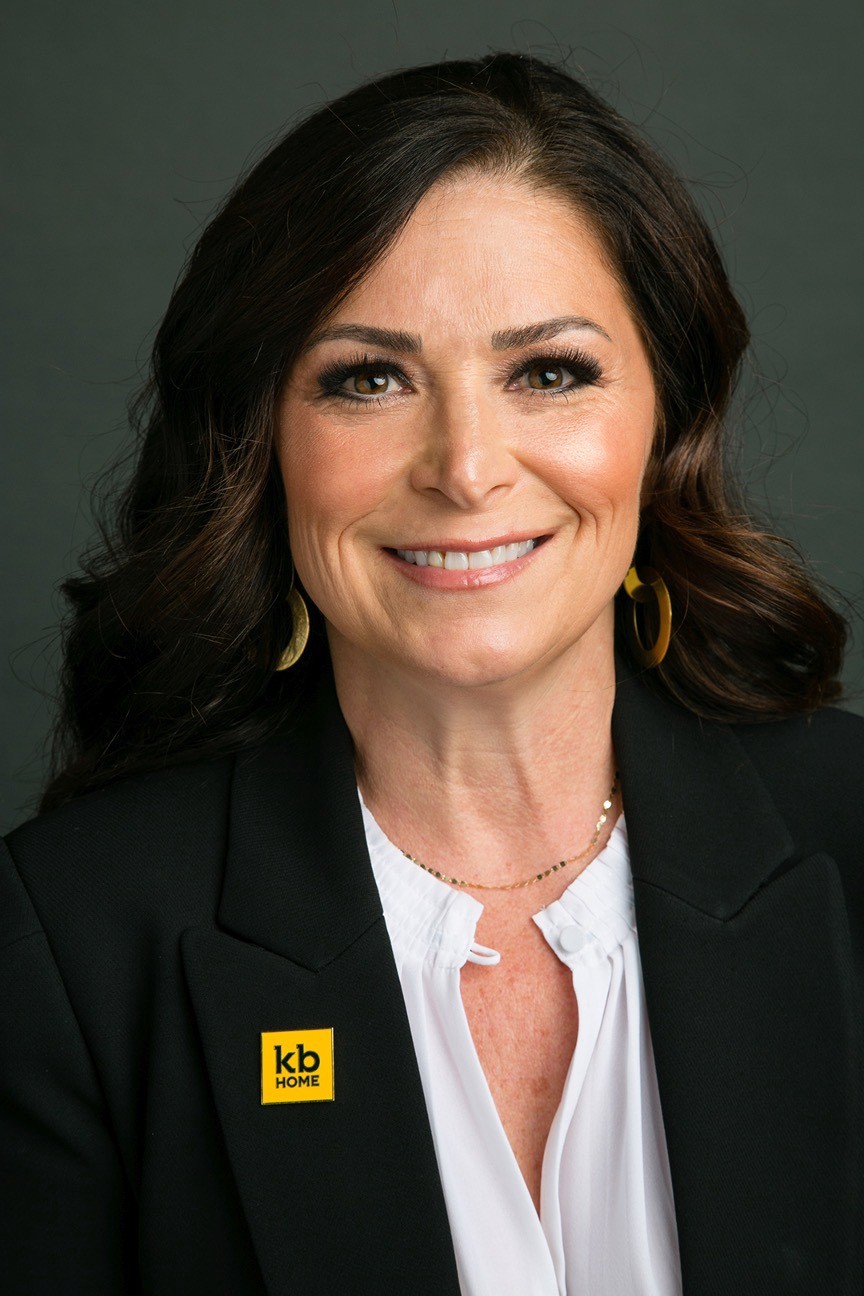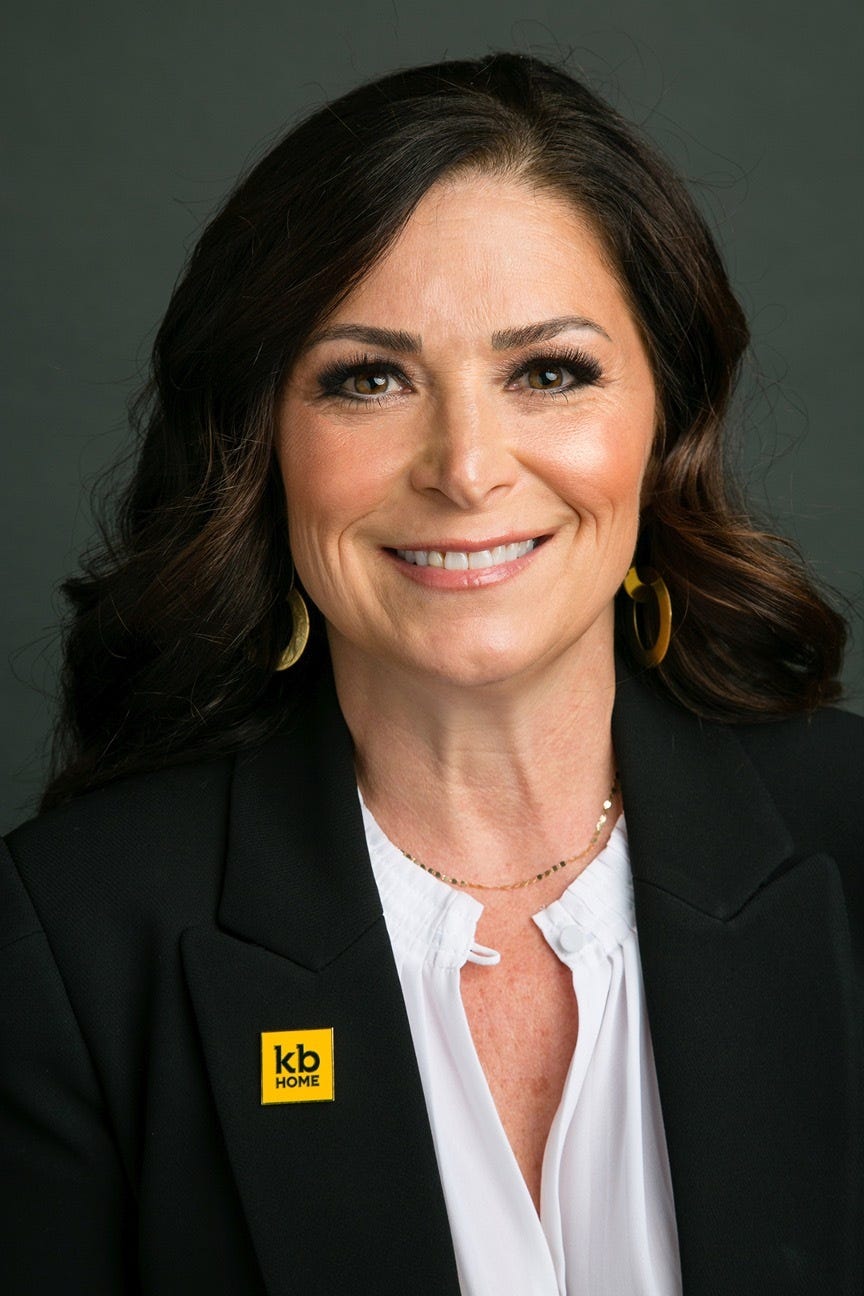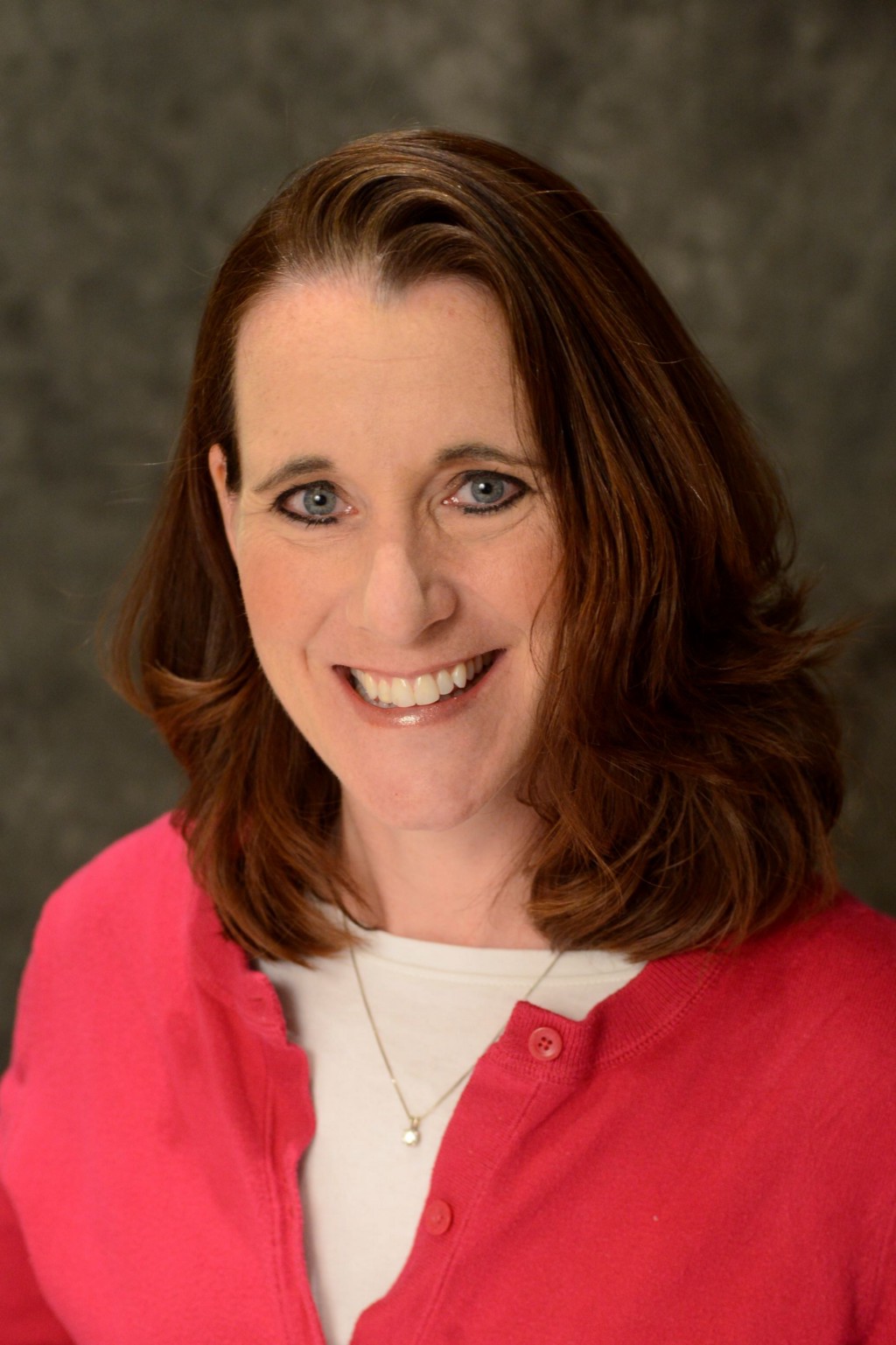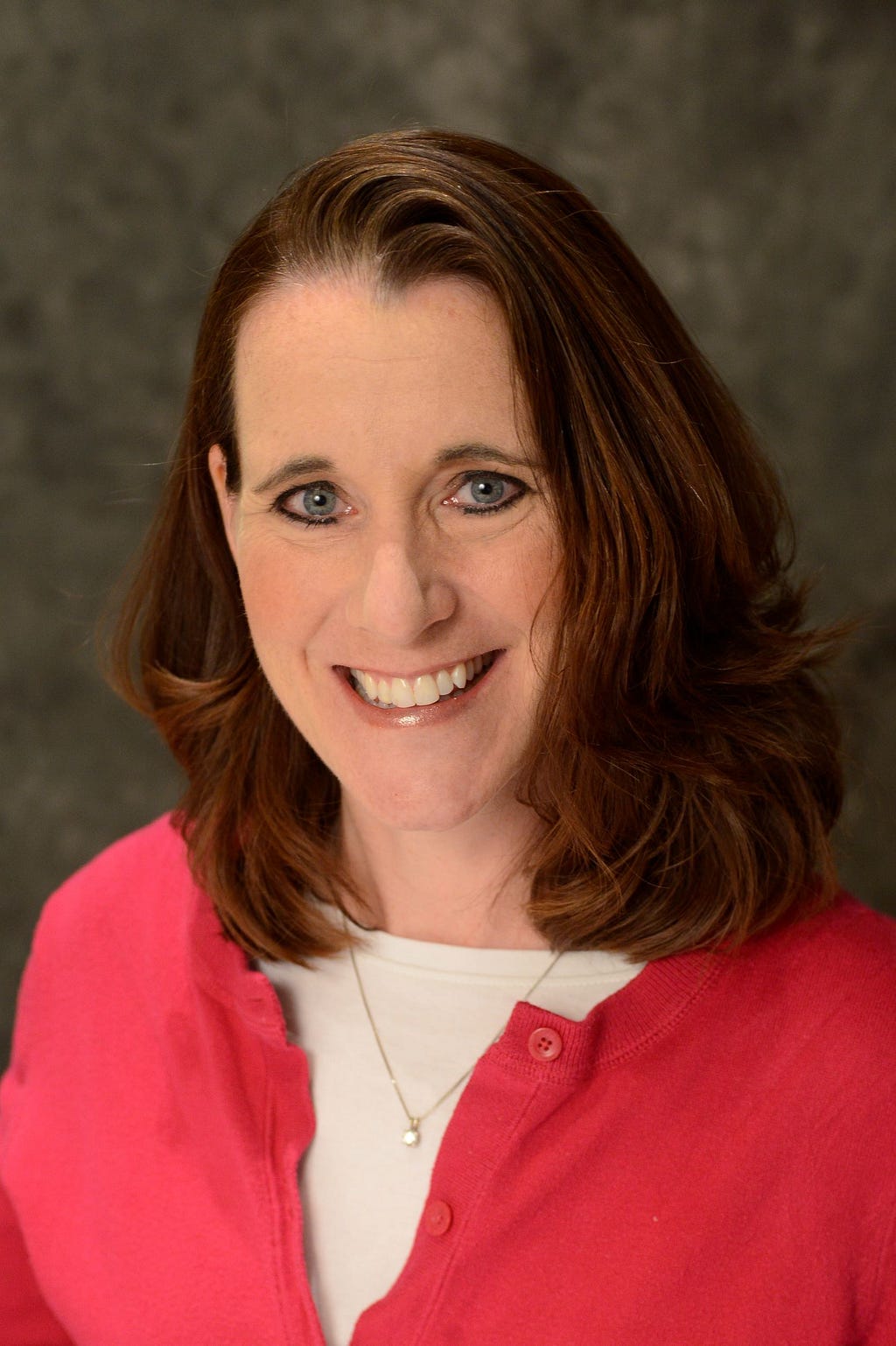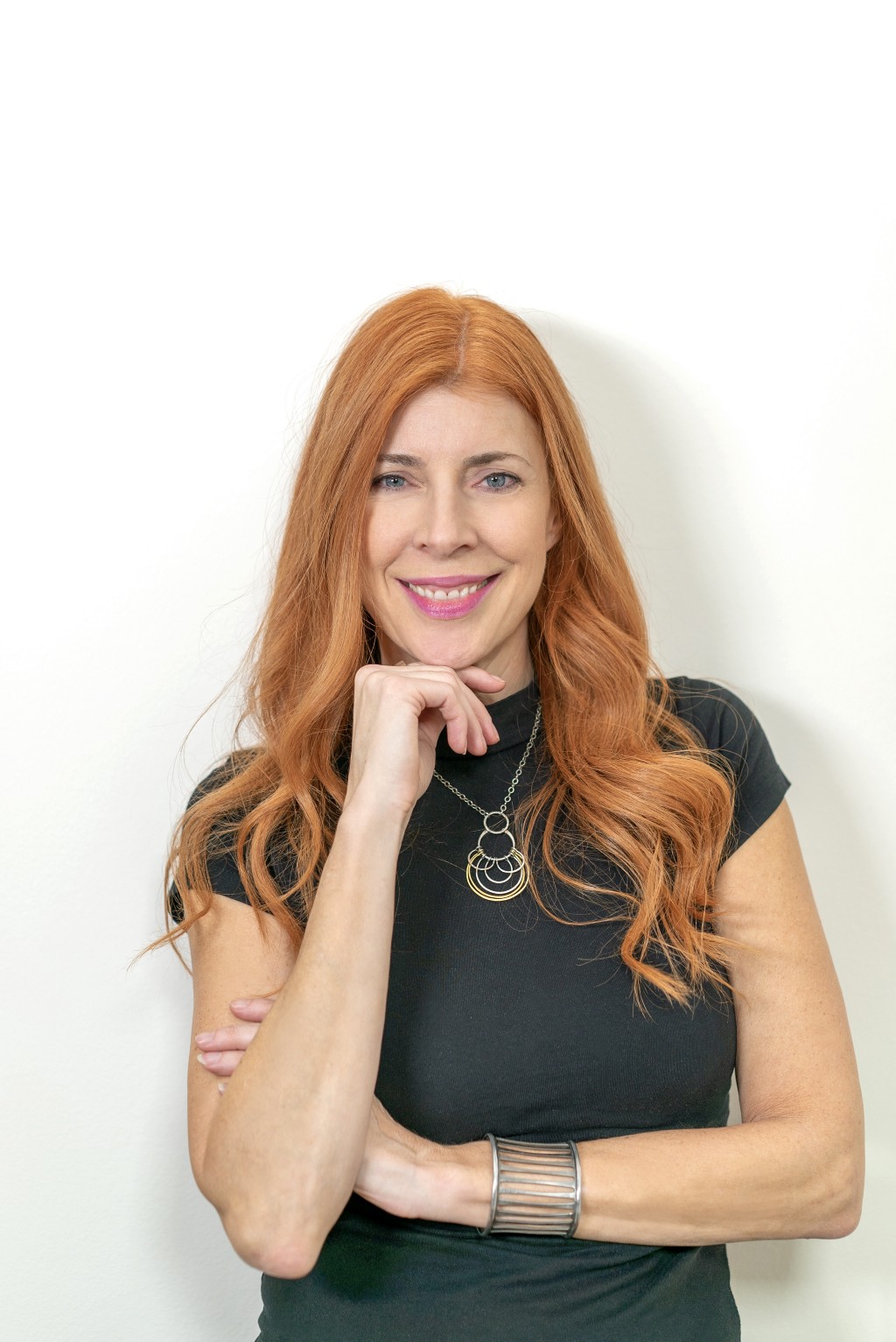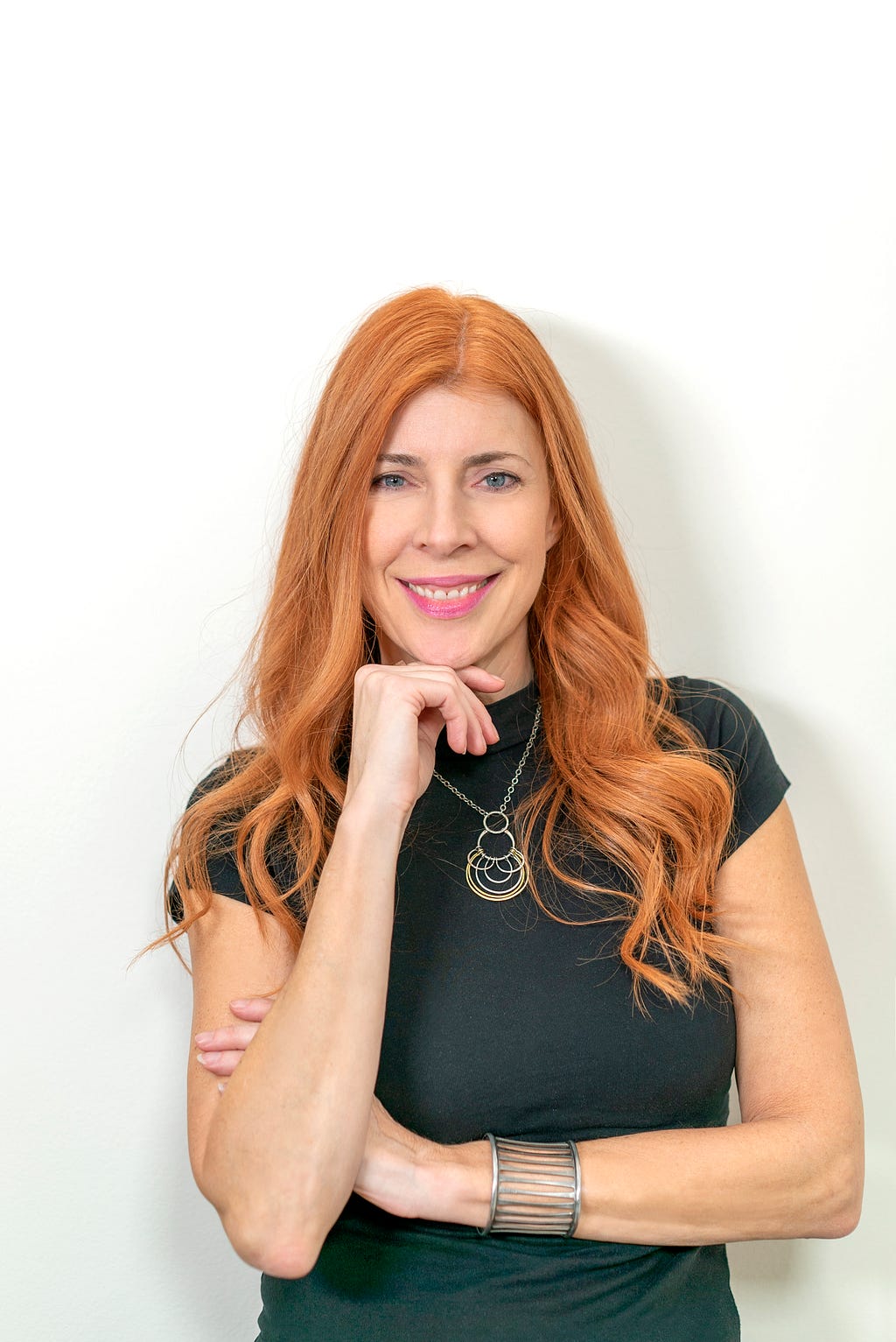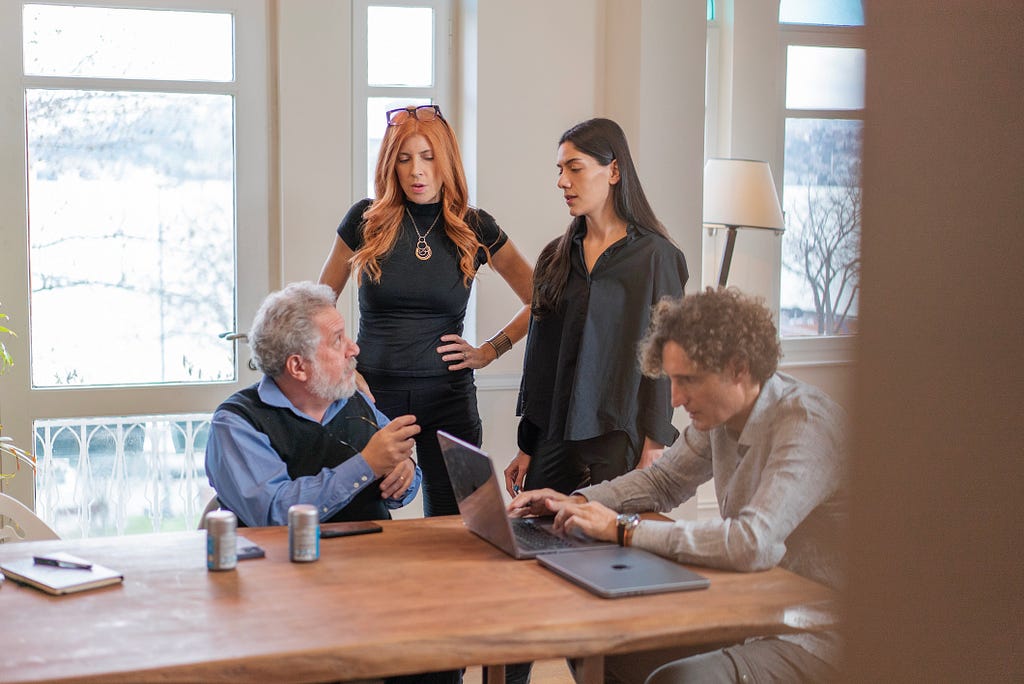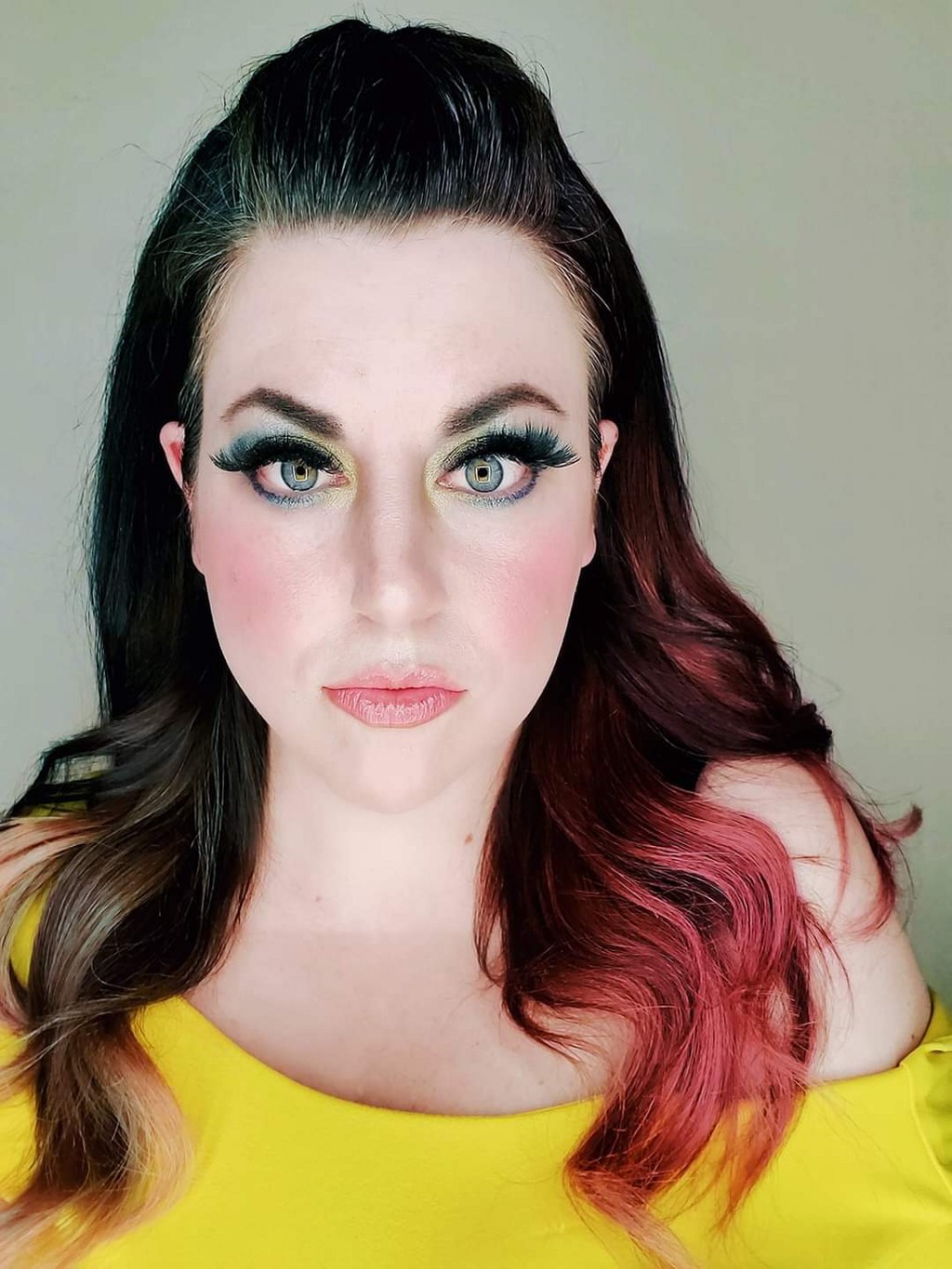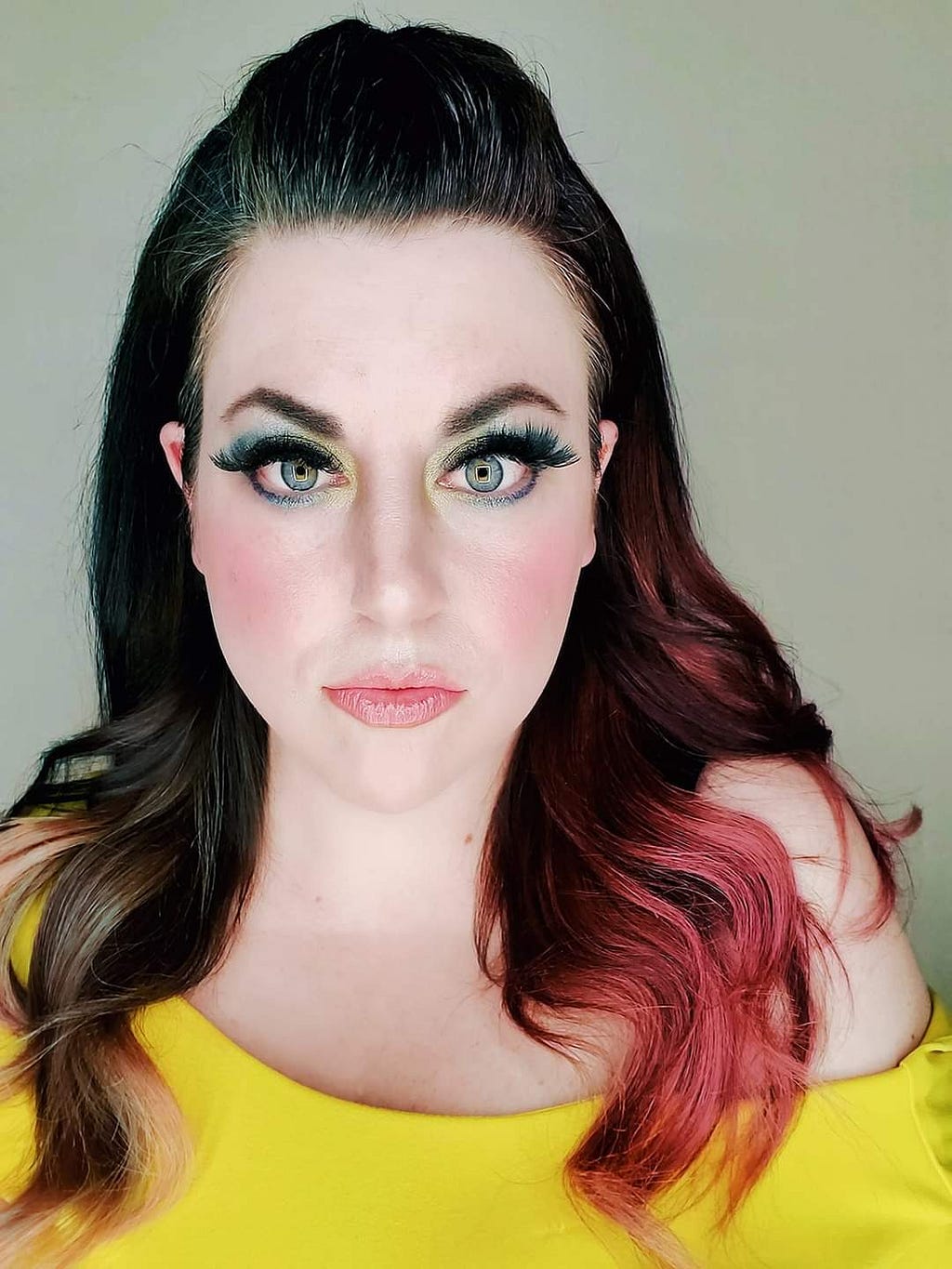Female Disruptors: Marilyn Pinto of KFI Global On The Three Things You Need To Shake Up Your Industry
An Interview With Candice Georgiadis
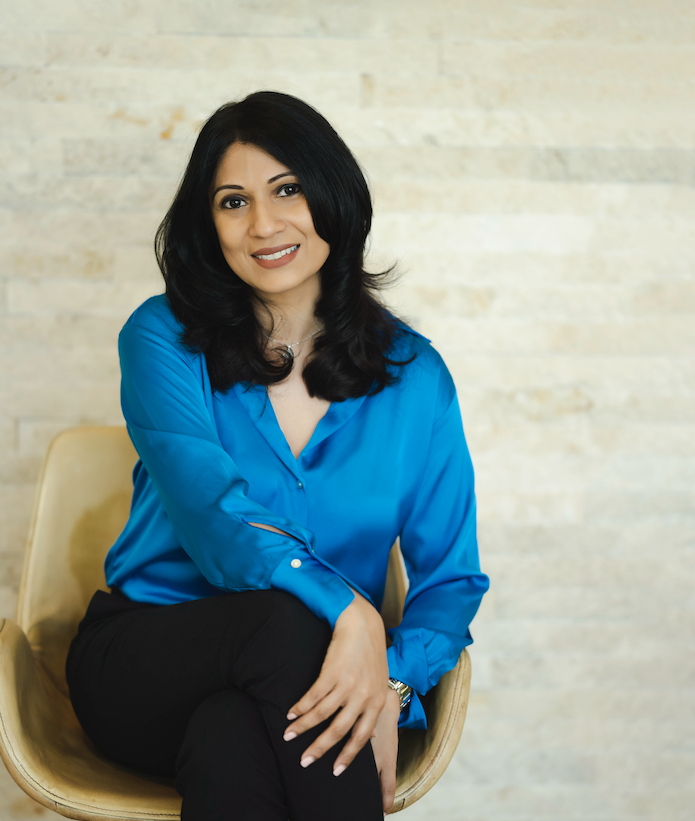
I was sufficiently affected by imposter syndrome to ensure that I relentlessly questioned my thinking and my ideas. I read and studied incessantly because I was insecure about my competence and profoundly curious about what I didn’t know. I wanted to ensure that I was thoroughly prepared and better informed than anyone who could question my credentials. As Adam Grant says in his latest book, Think Again, ‘Humility is a crucial ingredient of the mind, and I made sure I was dosing up regularly.’
As a part of our series about women who are shaking things up in their industry, I had the pleasure of interviewing Marilyn Pinto.
Marilyn L. Pinto is the Founder of KFI Global, an education company that specialises in teaching teenagers how to make smarter money decisions. KFI was recently awarded the Best Financial Literacy Project for schools by the Money Awareness and Inclusion Awards (MAIA) 2022. Marilyn is on a mission to bring this life-changing education to more youngsters across the world because it will empower them to step up, stand out and live life on their own terms. Her promise is a SMARTER, RICHER, BRAVER generation.
Thank you so much for doing this with us! Before we dig in, our readers would like to get to know you a bit more. Can you tell us a bit about your “backstory”? What led you to this particular career path?
I didn’t start this company because I noticed a gap in the market, I started it because I noticed a gap (more like a deep gaping hole) in my then eight- and ten- year-old daughters’ understanding of money. While they were both academically smart, they were clueless about money, and this problem wasn’t specific to them. Everybody else’s kids seemed to have the same issue.
I didn’t intend to start a company, I just wanted to enrol my kids in a programme that taught them about money in a thoughtful, holistic and intelligent way. There wasn’t one. I knew what I wanted, and every programme I looked into came up way short. That’s how and why I started KFI. It’s a labour of love, created not just for my kids but for any kid who’d like to be financially empowered.
Can you tell our readers what it is about the work you’re doing that’s disruptive?
That we are teaching kids, teens and young adults a critical life skill that is missing as part of their regular education.
That we do it in a way that they not only benefit immensely from the program but that they thoroughly enjoy the learning process.
That our program doesn’t just focus on building awareness but more crucially on mindset and attitude, which are arguably as important, if not more, on impacting behaviour change.
That our programs include aspects of psychology & neuroscience, which teenagers find intriguing.
That we are using a model that involves multi-stakeholder partnerships, that involve the whole ecosystem– schools, parents, students and financial institutions. This then becomes a shared vision — not just a vision that belongs to one person or company.
Can you share a story about the funniest mistake you made when you were first starting? Can you tell us what lesson you learned from that?
I thought that once I was trained, I could easily teach this to my kids. That was funny. Kids don’t listen to their parents. And there is a term for that, it’s called ‘proximity bias’. We are too close to them for them to see the value we can offer.
When I saw how widespread this issue was, I stopped taking it personally and learned to leverage this so that we could effectively teach kids/ teens in a way that was most beneficial to them, and their parents.
We all need a little help along the journey. Who have been some of your mentors? Can you share a story about how they made an impact?
I had so much help — mainly from the authors I love and follow. Adam Grant, Dan Ariely, Morgan Housel, Tony Robbins, Jason Zweig, Daniel Priestly, Adam Alter, John Holt, Dan Heath and so many others. (I did say I had a lot of help! ☺)
I am a voracious reader and reading all these different ideas and viewpoints helped me curate a vision that was unique yet resonant with my target audience.
In today’s parlance, being disruptive is usually a positive adjective. But is disrupting always good? When do we say the converse, that a system or structure has ‘withstood the test of time’? Can you articulate to our readers when disrupting an industry is positive, and when disrupting an industry is ‘not so positive’? Can you share some examples of what you mean?
I am not an academic. I do not hail from the hallowed halls of academia. For the longest time I demurred to them, thinking that they knew what was best for everyone, until I realised they don’t — not for everyone, not in all circumstances and certainly not on all issues. While they may have the best intentions, this does not always translate into doing what’s best for the student. While I initially felt like an imposter/ when starting KFI GLOBAL I had looked long and hard into what was being taught around money, how it was being taught, and more importantly what was not being taught, and it didn’t smell right.
I knew there had to be a better way. This was too critical an issue to leave to chance or experience, especially when I needed my own kids to acquire this skill soon. I couldn’t risk sitting and waiting silently on the sidelines, and academia is famous for its glacial pace of change. I was intrigued by what the entrepreneur Naveen Jain said in his article for Inc., ‘Why you should always bet on dreamers, not experts’: ‘Your ignorance is what makes you the best person to disrupt the industry.’
This is true because being ignorant allows you to ask the questions the experts can’t; you can think in ways the experts can’t, because they are boxed in by their assumptions; you can break rules the experts won’t ever dare to. People from within the industry tend to tweak incrementally. I knew that incremental change wasn’t going to cut it. A radical makeover was in order. I was also enough of an outsider to have no stake in the way things had always been done. I could tell the emperor that he wasn’t wearing any clothes.
I was sufficiently affected by imposter syndrome to ensure that I relentlessly questioned my thinking and my ideas. I read and studied incessantly because I was insecure about my competence and profoundly curious about what I didn’t know. I wanted to ensure that I was thoroughly prepared and better informed than anyone who could question my credentials. As Adam Grant says in his latest book, Think Again, ‘Humility is a crucial ingredient of the mind, and I made sure I was dosing up regularly.’
Can you share 3 of the best words of advice you’ve gotten along your journey? Please give a story or example for each.
1. An old African proverb: “To go fast go alone, to go far, go together”.
It formed the basis of my vision for KFI GLOBAL. To use multi-stakeholder partnerships, that involve the whole ecosystem — schools, parents, students, financial institutions and the press. So that it isn’t just one person’s vision, but a vision that belongs to everyone.
I now work really hard to build these multi-stakeholder partnerships and it’s amazing to see the difference working together can make to the bigger vision.
2. Daniel Priestly says: “Don’t be in the spotlight, become the spotlight.”
This helped change the way I thought about publicity. Being inherently shy and an introvert — public speaking and interviews were things I avoided like the plague. Until this piece of advice changed the way I think. I don’t need to be in the spotlight, this wasn’t about me. I need to shine the spotlight on the issue of financial literacy for the younger generation. It helped me get over my neuroses of attention.
We are sure you aren’t done. How are you going to shake things up next?
I’d like to continue to partner with financial institutions and bring this education to schools for free. It would be a win-win for all involved — the students get world class training for free, the school scores brownie points with the parents and the financial institutions get to deliver on their CSR/ Sustainability vision.
Keep in mind that we do not product push to any of our students in any of our classes, no matter who the sponsor is.
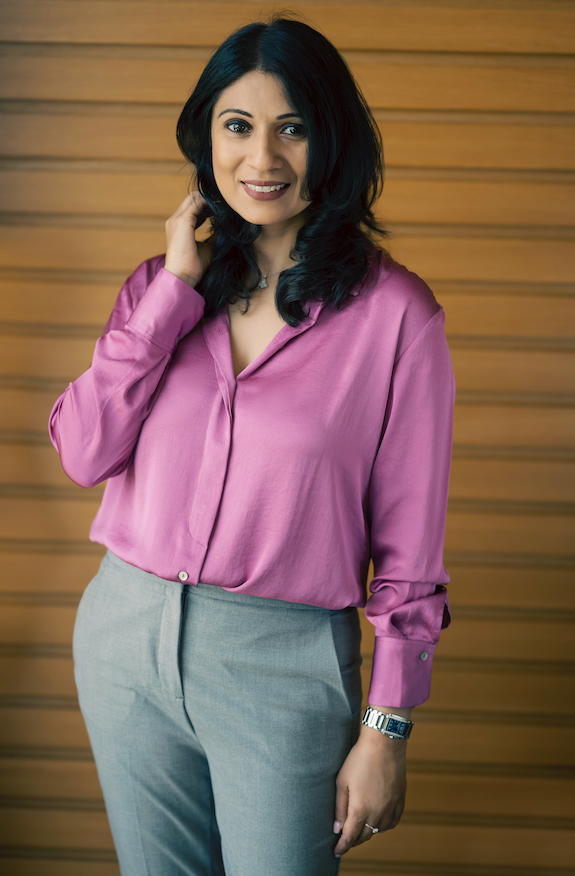
In your opinion, what are the biggest challenges faced by ‘women disruptors’ that aren’t typically faced by their male counterparts?
I think our biggest challenge is ourselves, we doubt our abilities more than anyone does. We constantly second guess ourselves, when we should be acting with boldness. We are victims of self-imposed perfection, when we should realise that prolific is better than perfect. We also take failure too personally.
Men don’t seem to have these problems; they act with a lot more confidence and assertiveness. They don’t wait till things are perfect, they make it up as they go along. And they bounce back from failure much faster too.
Do you have a book/podcast/talk that’s had a deep impact on your thinking? Can you share a story with us?
As I said before I read a lot and I’ve been very influenced by so many great authors. Cal Newport is one of my all-time favourites though. His book ‘So Good They Can’t Ignore you’ really opened my mind to the concept of mastery and I love his idea of “Passion is dangerous”. I agree, for me, financially educating youngsters isn’t a passion, it’s an obsession.
I often get told that I’m passionate about what I do, but I disagree. Passion is too mild a term for the way I feel about the work I do. I’m obsessive. That’s what enabled me to curate a programme and a methodology that has revolutionised the way financial education is taught to teenagers.
Being obsessive means I always want to do the right thing for the teens in my care. This has earned me the trust and gratitude of parents.
I obsess daily about how to reach more teens so they can leverage this knowledge for a brighter future and whether I am doing enough to further this cause. This is why I keep pushing every day, even when the obstacles seem insurmountable, and this is why I enjoy the journey.
This obsession is why I smile through it all.
You are a person of great influence. If you could inspire a movement that would bring the most amount of good to the most amount of people, what would that be? You never know what your idea can trigger.
Well, since I’m obsessed with the idea of financial education for youngsters, I’d like to inspire a movement to make this education available to all teens. And delivered in a way that we know is effective and enjoyable, while not pushing any products during the program delivery.
Can you please give us your favorite “Life Lesson Quote”? Can you share how that was relevant to you in your life?
I love the saying by Bozoma St John “We spend too much time complaining about the way things are, we forget that we have the power to change anything and everything”
I was done complaining and I’d had enough of admiring the problem. I decided I was going to change the face of financial education for the younger generation.
How can our readers follow you online?
Social media handle: @kfiglobaltribe
I’m most active on Linkedin though.
This was very inspiring. Thank you so much for joining us!
Female Disruptors: Marilyn Pinto of KFI Global On The Three Things You Need To Shake Up Your… was originally published in Authority Magazine on Medium, where people are continuing the conversation by highlighting and responding to this story.


